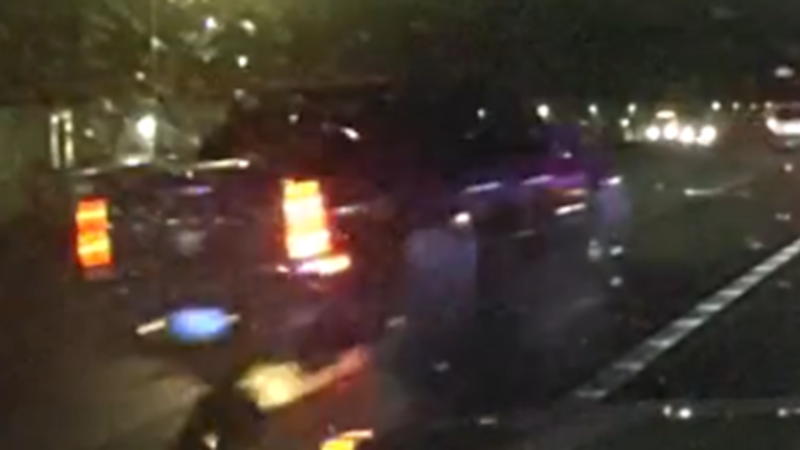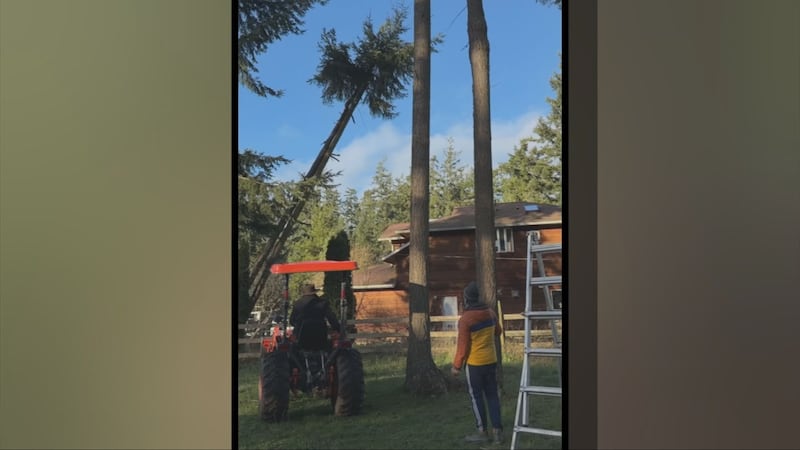Ivory heirlooms, fur coats, exotic leather, even soup from shark fins--all of these items could now land you behind bars.
Washington State's groundbreaking Animal Trafficking Act became law in 2015 and went into effect the following year.
KIRO 7 has learned the Washington State Attorney General’s Office is preparing to file the first-ever criminal charges under the new law.
“We’re finding people now have knowledge about the ban and yet they’re still engaging in the activities, so we’re addressing those issues,” said Mike Cenci, deputy chief of the Washington Department of Fish and Wildlife.
Scroll down to continue reading
More news from KIRO 7
- Documents: Student in school shooting plot: 'I need to get the biggest fatality number'
- Florida school shooting suspect charged with 17 counts of premeditated murder
- How to find your King County property taxes in three quick steps
- State Senate votes to repeal death penalty in Washington state
- Florida school shooting: Football coach shot, killed while protecting students hailed as hero
The WDFW has been investigating an Everett antiques dealer for months after discovering online ads the man allegedly placed for “Netsuke," a Japanese term for sculptures made from ivory.
According to investigative documents filed in King County Superior Court, "nearly every surface" in the man's dining and living room areas was covered in trays of what appeared to be carved ivory.
Distributing many types of ivory is now against the law.
“We discovered over 1,800 items in this person’s possession that were potentially for sale,” Cenci told KIRO 7. “As we dug a little deeper, we discovered he’s been in the ivory trade business for quite some time.”
The WDFW passed its investigation on to the Washington State Attorney General's Office.
Spokeswoman Brionna Aho said, charges are expected to be filed soon in what will be the first case ever prosecuted under the state's Animal Trafficking Act.
However, it's not just the buying and selling of ivory that is now illegal.
Distribution of items made from elephants, tigers, sharks, marine turtles and other endangered species is now illegal.
This including an animal most have probably never even heard of; a pangolin, which is an ant-eater from Africa and Asia.
“Sadly, its claim to fame is that it is the world’s most highly-trafficked animal,” Karen Povey told KIRO 7.
Povey is the conservation engagement manager for Point Defiance Zoo and Aquarium in Tacoma and Northwest Trek in Eatonville.
She said the demand for items made from endangered species drives the trade.
Once demand is cut off, she believes endangered animals like the Sumatran Tigers at Tacoma's Point Defiance Zoo will be saved.
“Most people don’t realize Washington and the rest of our country are actually huge players in the market for wildlife products,” Povey said. “This isn’t just a problem that’s happening in other parts of the world. We are fueling the demand ourselves, right here.”
Exotic animal products on the black market
Povey showed KIRO 7 a number of now-illegal items seized from travelers flying into Washington from other countries, including furs made from spotted leopards, pangolin boots, skin cream made from marine turtle shells and an elephant tusk with a bullet hole.
“We’re slaughtering elephants into extinction because of its teeth,” Povey said.
However, not everyone trafficking endangered species is as obvious about it as those who try to smuggle the items through customs or advertise online, and that's where K-9 "Benny" comes in.
Sniffing out ivory
Benny and his undercover Fish & Wildlife handler, Detective Lauren Wendt, underwent 220 hours of training in California to learn how to sniff out the endangered species covered under Washington's new law.
“He’ll sit and stare at the odor or the most concentrated part of the odor,” Wendt told KIRO 7.
Some species are easier for Benny to detect than others, such as shark fins.
But Benny can also now detect the faint smell of ivory.
“To me, it doesn’t smell like anything at all,” Wendt said. “To K9 Benny, and dogs in general, it’s incredible. They’re able to pick up the odor.”
Wendt said the WDFW has never had a wildlife detection dog statewide before Benny.
“So a lot of this is new, and we’re just working through the challenges as they come,” he said.
With Benny now on the team, Cenci told KIRO 7 that the days of warning people about the new law are over.
It's now time for arrests and prosecution.
"When you commercialize an animal, when you add value, then poaching tends to increase," according to Cenci. "And that's just not something a lot of these endangered populations can stand."
Read more about WDFW wildlife trafficking enforcement on their website, and learn more about how you can get involved through the Point Defiance Zoo and Aquarium.
Cox Media Group





